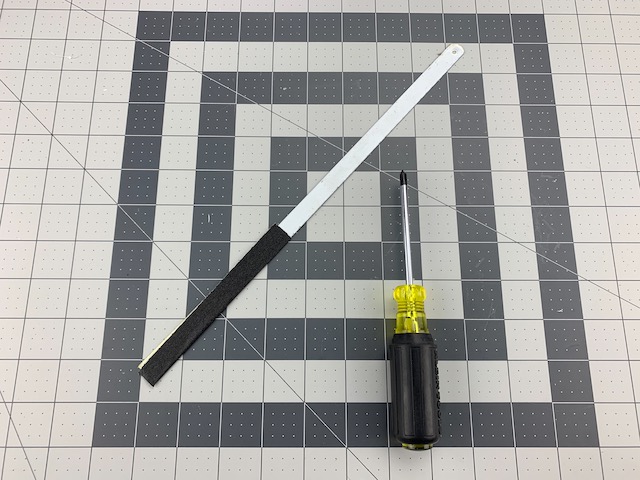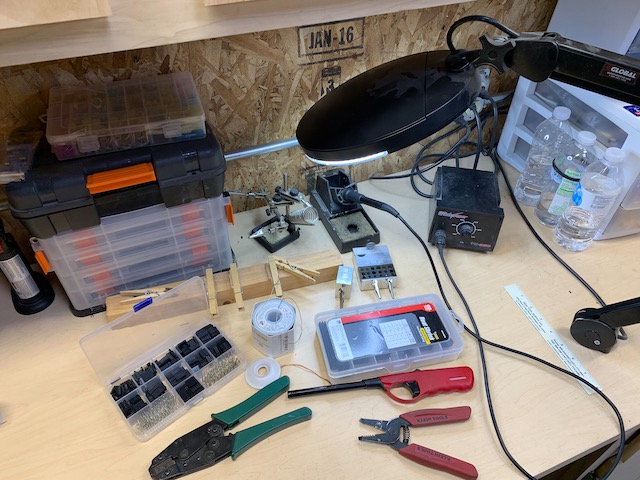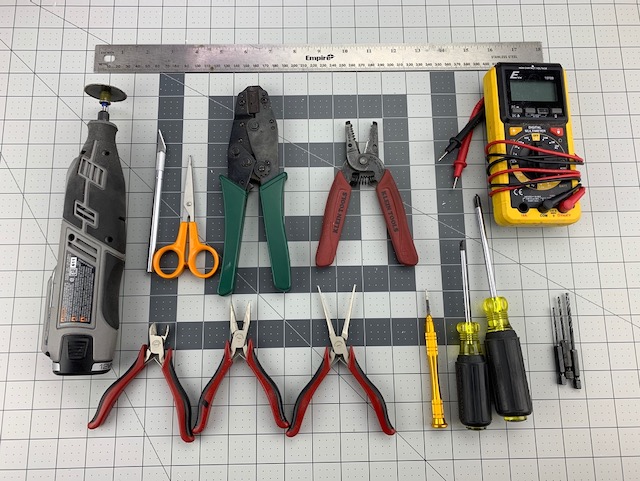Required Tools
Caution – Glue is sticky, knives are sharp, and soldering irons are hot! Seriously. Wear safety glasses and pay attention to what you are doing with the business end of any tool.
The Basics
All you really need is a ruler, hacksaw blade, and Phillips screwdriver to build the base frame. But that will only get you started. Read on for more info on tools that will help you succeed in building and maintaining your own small robot.

Note – There is a difference in sizes and quality of Phillips screwdrivers. If you find yourself stripping heads check that you have the right size and a well machined tool.
Smart Is Safe
Don’t forget safety glasses. Just get in the habit of putting them on when you use tools. We don’t need to embed gross medical videos do we? Add a dust mask when sanding or cutting carbon fiber tubes.
Solder and Crimp
In order to build your power and sensor distribution you will very likely need to solder. And, if you are using servo style pins, a crimping tool and crimp pins are very handy to have in order to build custom cables.

Note – We have a few tutorial links over in Resources if you aren’t sure how to use this stuff.
Example Kit
Similar to what is pictured:
Soldering jigs are pretty easy to build to save a few quid. Take a close look at the picture above and you will see a block of wood with clothes pins glued on. Works well to get started. If you have it in the budget then buy something fancy. It’s worth it.
Other Tools
While you do not need everything on the list below, it will be a good idea to start adding them to your collection as soon as possible. Remember, tools are an investment.
- Drill Bits – Small ones to clean out clearance holes. You can usually spin them with your fingers to get the job done but a small cordless drill is very nice to have.
- Drill – A small cordless can be used all over the house.
- Rotary Tool – With abrasive cutoff wheel can cut tubes. Can also stand in for a small drill.
- Multimeter – Mainly one that can do continuity check and measure DC voltage.
- Wire Strippers – Make sure they can handle small stuff for sensor cables and big stuff like battery leads.
- Scissors – Usually for cutting velcro strips.
- Hobby Knife – Handy for trimming plastic and cutting sticky tape.
- Pliers – Needle-nose are usually best for reaching hard to get wires and fasteners.
- Allen Wrenches – Usually needed if you are going to work around this type of equipment
- Adjustable Wrench – Might be needed to tighten your props or small nuts.
- Calipers – There’s always something that is easier to measure with calipers.

Note – If you do not know what some of those tools are, now is a good time to find out. Internet search is great, but finding artisans to talk to is even better. #bringbackshopclass